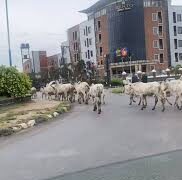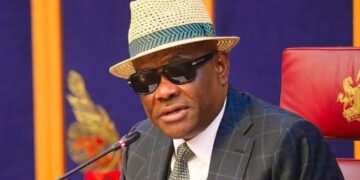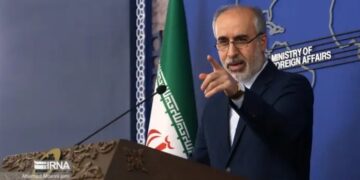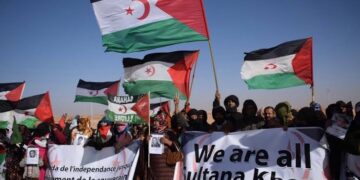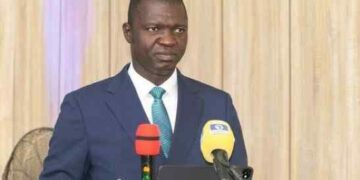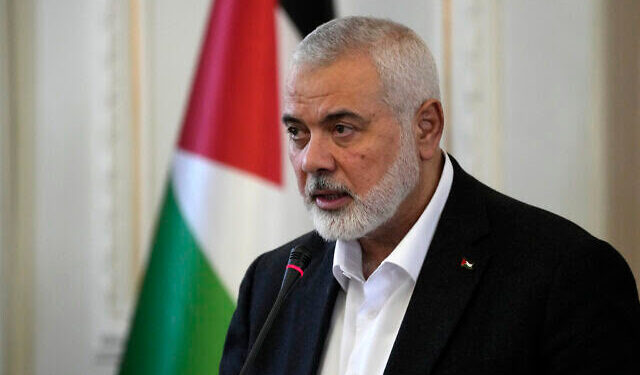Hamas political leader, Ismail Haniyeh has been assassinated by the Israeli airstrike in Iran, the Hamas militant group said on Wednesday, describing the strike as a “severe escalation” that would not achieve its goals.
Iran’s Islamic Revolutionary Guard Corps also confirmed the death of Haniyeh, hours after he attended a swearing-in ceremony for the country’s new president Masoud Pezeshkian.
It was the second high-profile assassination attributed to Israel in a matter of hours, coming after an airstrike in Beirut that killed Hezbollah’s top military leader. There was no immediate comment on the Tehran strike from Israeli authorities.
Israel had vowed to kill Haniyeh and other leaders of Hamas after the group’s devastating October 7 attack on Israel that killed 1,200 people and saw 251 taken hostage.
Haniyeh, normally based in Qatar, has been the face of Hamas international diplomacy as the war triggered by the attack has raged in the Gaza Strip, where three of his sons were killed in an Israeli airstrike. He is the most senior Hamas official killed since the war started.
One of Haniyeh’s bodyguards was also killed, the IRGC said
Palestinian Authority President Mahmoud Abbas in a statement said the killing of Haniyeh was a “cowardly act” and urged Palestinians to remain united against Israel.
“President Mahmoud Abbas of the State of Palestine strongly condemned the assassination of Hamas leader Ismail Haniyeh, deeming it a cowardly act and a serious escalation.
“He urged our people and their forces to unite, remain patient, and stand firm against the Israeli occupation.”
Nobody has claimed responsibility for the killing but analysts on Iranian state television immediately began blaming Israel for the attack.
Haniyeh arrived in Tehran on Tuesday to attend the inauguration of Iran’s new President.
He had met with Pezeshkian as well as Iran’s supreme leader Ayatollah Ali Khamenei.
He was already a well-known figure, having become Palestinian prime minister in 2006 following an upset victory by Hamas in that year’s parliamentary election. Considered a relative pragmatist, Haniyeh lived in exile and split his time between Turkey and Qatar.
He had traveled on diplomatic missions to Iran and Turkey during the ongoing Gaza war, meeting both the Turkish and Iranian presidents.
Haniyeh was said to maintain good relations with the heads of the various Palestinian factions, including rivals to Hamas.
He joined Hamas in 1987 when the group was founded amid the outbreak of the first Palestinian intifada, or uprising, against Israel, which lasted until 1993.
Hamas is part of the “axis of resistance” that also include Tehran-aligned groups such as Hezbollah in Lebanon and the Houthis in Yemen arrayed against Israel.
Iran has made support for the Palestinian cause a centerpiece of its foreign policy since the 1979 Islamic Revolution. It has hailed Hamas’s October 7 attack on Israel but denied any involvement.
In April, an Israeli airstrike in Gaza killed three of Haniyeh’s sons and four of his grandchildren.
In an interview with the Al Jazeera satellite channel at the time, Haniyeh said the killings would not pressure Hamas into softening its positions in the ongoing ceasefire negotiations with Israel.
The killing of Haniyeh came after Israel carried out a rare strike on Beirut, which it said killed Shukr, whom it described as Hezbollah’s terror military commander. Hezbollah has not confirmed Shukr’s death in the strike, which also killed at least one woman and two children and wounded dozens of people.
The strike came amid escalating hostilities with the Lebanese terror group, which has carried out near-daily attacks across the border in what it says is support for Gaza. Israel said the strike on Shukr was revenge for a rocket attack that killed 12 children at a soccer field on the Golan Heights earlier this week. The US also blames Shukr for planning and launching the deadly 1983 Marine bombing in the Lebanese capital.






